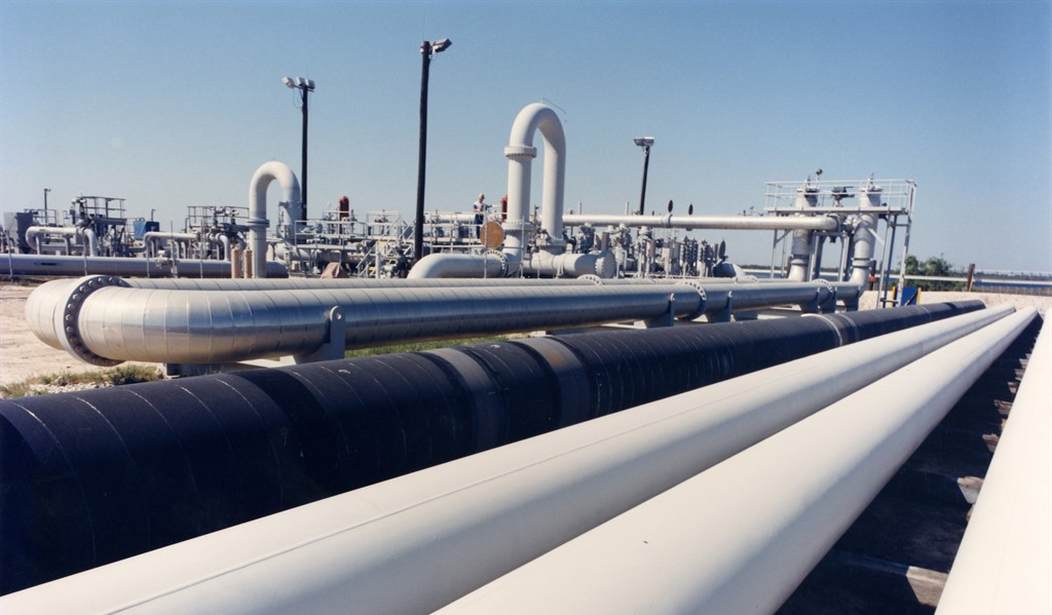In case you hadn’t noticed, the nation’s Strategic Petroleum Reserve is now down to 389 million barrels, the lowest levels seen since the early years of Ronald Reagan’s presidency. Even with the election now behind us, the current plan is to keep releasing more oil from the SPR until crude oil prices drop below $70 per barrel. This is obviously a situation that can’t continue indefinitely and the SPR needs to be refilled. Has anyone in Washington learned anything from this experience? The president and CEO of the American Petroleum Institute, Mike Sommers, recently went on Fox News with a message for the White House and any future presidents who might be tempted to follow Joe Biden’s example. He bitingly referred to the SPR as now being the “strategic political reserve,” and called on the government to stop politicizing what is supposed to be a vital national asset that is meant to supply a buffer during an actual emergency, not a political tool that presidents use to scare up a few more votes. Sommers also warned that we could be running into another “major oil crisis” early in the new year.
As the Strategic Petroleum Reserve (SPR) falls to “dangerously low” levels, American Petroleum Institute president and CEO Mike Sommers issued a warning to the Biden administration that a negligent plan to restore it could trigger another economically painful oil crisis.
“The Strategic Petroleum Reserve, unfortunately, has become the strategic political reserve. And we have grave concerns about how it has been so politicized. This is for emergency purposes, not to lower gasoline prices during a time during a political season,” Sommers said Friday on “Mornings with Maria.” “But I think doing this willy-nilly and doing it in a way that that doesn’t make sense for the market we’re in, we could be dealing with another major oil crisis here in the next few weeks.”
“We’re also real concerned, Maria, about how low it has gone. Lowest level since 1984, not necessarily because of market conditions, but because of political concerns,” Sommers continued.
Sommers issued a reminder that the current SPR inventory is down to where it was in 1984. But back then, the country used more than 20 percent less oil than we do today. If we run into a real shortage (as we could as soon as early January), we would burn through those reserves very quickly.
When Pentagon spokesman John Kirby was asked about the oil crisis (for some reason), he claimed that Biden has issued plenty of drilling permits so the oil companies should just start drilling. Sommers waved that claim away as being a “myth” and completely “debunked.” Most of the planned lease auctions were canceled and you can’t start drilling someplace on the day you get the permit. There is a lot of prep work to be done first and environmental inspections that must be passed.
As Sommers pointed out, there are two things that need to be done. First, we need to stop draining the SPR and begin refilling it as soon as the market will allow. And second, we need to get domestic oil and gas production up to the levels we saw three years ago. That requires more than just permits. It requires a climate where the oil and gas industry is willing to make the investments required to move back to full drilling capacity and restore or replace all of our oil refineries. That’s not going to happen with the federal government constantly talking about “ending fossil fuels” and increasing the cost of permits and onerous environmental regulations.
And what about that oil crisis that Sommers mentioned? Demand has been easing slightly so we might make it through this winter without too many shortages. But experts are still warning that the real crisis is projected to hit next fall in 2023. At that point, demand will likely outstrip the oil supply so badly that there will be places where you simply won’t be able to get fuel at any price. And when that happens, people will begin to die. We need a strategy in place now that will address those needs, but we seem to be doing precisely the opposite. And if it happens, don’t come back and say you weren’t warned.








Join the conversation as a VIP Member